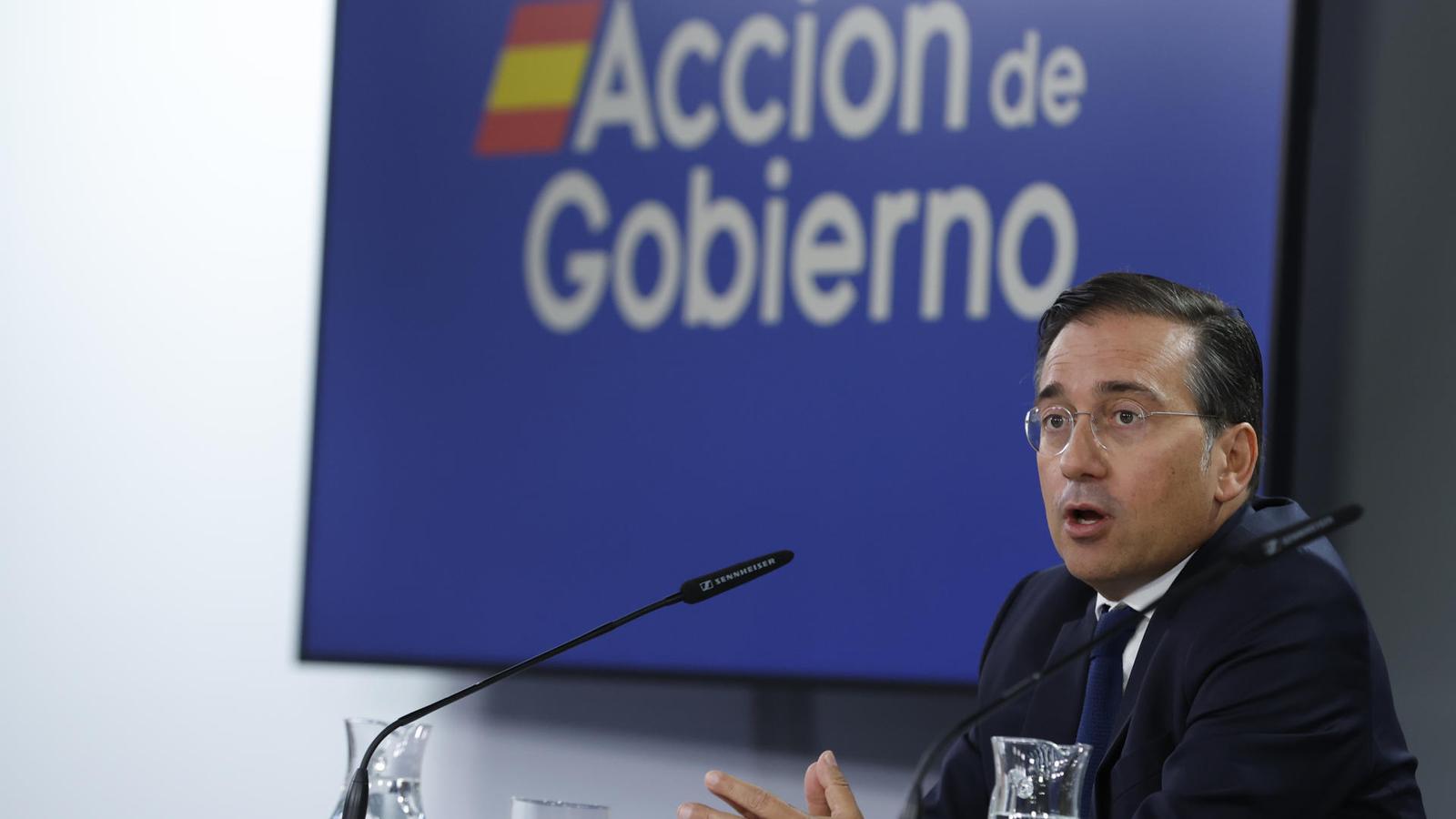Sánchez postpones the arms embargo decree due to its complexity
Albares announces a ban on two Israeli ministers entering Spain, but leaves many of the measures in question.


MadridThe Council of Ministers did not approve this Tuesday the decree law for the arms embargo in Israel, which Spanish President Pedro Sánchez promised this Monday in an institutional declaration at the Moncloa Palace. The Spanish government has decided to postpone it—an attempt will be made for next week—while waiting to work out the details of the regulations, given that Sánchez's announcement left some uncertainties. Will it affect only weapons or also dual-use material (military and civilian)? How will it be compatible with European trade regulations, given that until now the Spanish government had warned that there could be difficulties? "The Council of Ministers has adopted the agreement. Now comes the drafting. Many ministries are involved, and we are working," stated the Minister of Foreign Affairs, José Manuel Albares, at a press conference at the Moncloa Palace.
Sánchez's announcements raised doubts about their impact and real effectiveness. For example, the ban on aircraft carrying defense material transiting through Spanish airspace to Israel contradicts the agreement between Spain and the United States for the use of the Rota and Morón bases, which the Donald Trump administration can use without always informing them of the final destination of the planes that stop over. "If these bases are not stopped, the embargo will not be real," denounced Podemos Secretary General Ione Belarra during a rally of pro-Palestinian organizations in Madrid. Sources at the Moncloa make it clear that changing any bilateral agreement with the US is not on the table.
Of the list of measures announced by Sánchez, all have come into effect except for the arms embargo, the ban on ships sailing through Spanish waters, and the ban on importing products from illegal settlements in Palestinian territory, according to the Moncloa reported tonight, about which the Moncloa reported later this evening. Albares hadn't provided any details, and questions remain about some measures, such as why the State is being denied access to ships carrying fuel for use by Israeli forces. Is it only fuel, or other military equipment as well?
Veto of two Israeli ministers
What will be implemented immediately is the inclusion of two ministers in Benjamin Netanyahu's government on the list of people barred from Spanish territory. These are Finance Minister Bezalel Smotrich and National Security Minister Itamar Ben-Gvir, joining the 13 "violent settlers" already on this veto list. "Spain has a moral obligation to act. We are the country in the world that does the most for Palestine, peace, and international law," Albares argued in his appearance.
Another decision is the recall of the ambassador in Tel Aviv for consultations, which is diplomatically different from a permanent withdrawal, but in practice is a provisional withdrawal. Therefore, there is no return date. Regarding a hypothetical severance of relations, Albares argued that it is a "very unusual" step in international relations and that it has only been taken once in Spain, in the 1980s with Guatemala over the embassy burning. The minister ruled out a severance of relations with Israel because the goal is to work toward a two-state solution.
